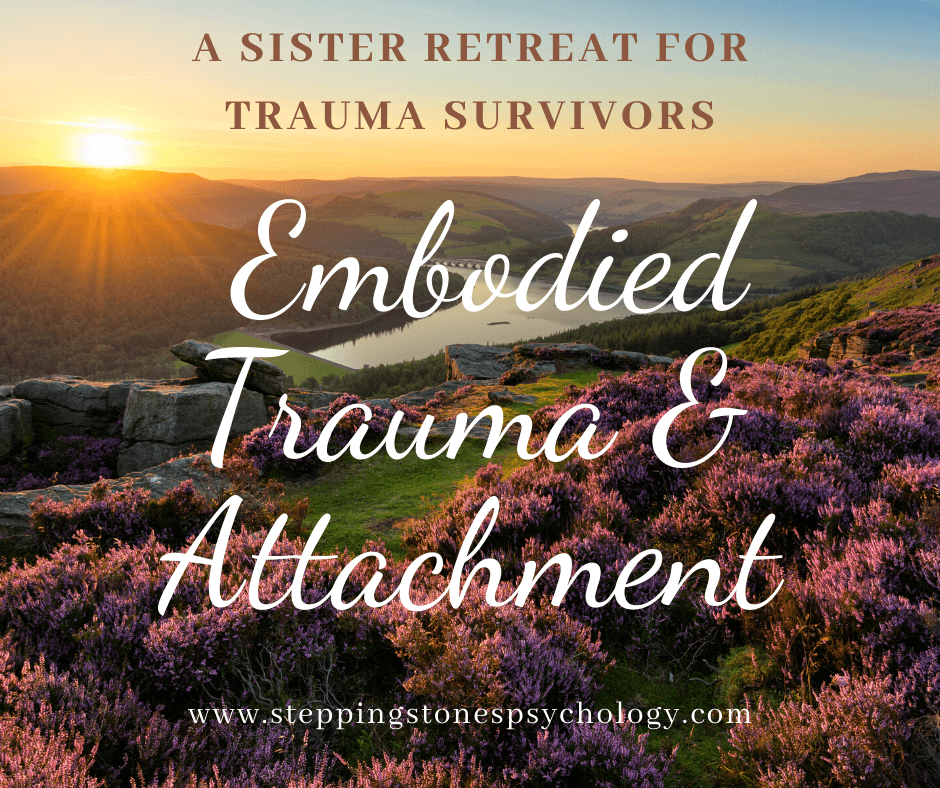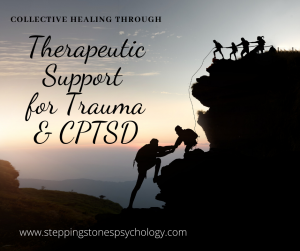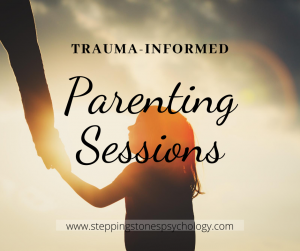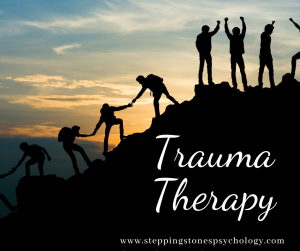Hi there,
Hope you are well and having a beautiful day.
So, the lovely Vicky and I thought we would take turns to share what each of us will be bringing to our upcoming Embodied Mind and Nurtured Heart Retreat that will be taking place in May 2021.
Vicky will share a blog later about her bit. I will talk a little bit here about what I will be bringing to the retreat
Attachment Theory often lays the foundation for therapeutic work when exploring our early life experiences and the relationships with our parents. We will be doing reflective activities; gently making sense of how we see ourselves and our world, and how we build and manage relationships. This is a therapeutic activity that I have developed and one which I have used many times, with children, young people and adults. Each time, the process has been very powerful and insightful. I am really looking forward to sharing this with you.
Another piece of therapeutic work that I plan to facilitate is around the raw and wounded parts that we carry within us. According to most psychology theories, it is believed that difficult childhood experiences lead to the development of the painfully raw parts within us. There are different terminologies for this: in Internal Family Systems (IFS), these are called ‘Exhiles’ which refers to the wounded, and often young parts of ourselves. In other psychology theories, this is known as the ‘Wounded Child’. The wounded child is developed as a result of us not feeling safe when growing up. I will invite you to engage in a series of therapeutic writing activities based on prompts, that will aid you in not only connecting with your wounded parts but also gently starting to heal them.
I will also be integrating elements from IFS which is a psychotherapy model used to work with complex trauma. As I mentioned earlier, the wounded parts are called Exiles in IFS, and these are what lead us to become rejecting, shameful and critical of ourselves. Think about your inner critic and all the self-loathing you may have been doing. A core tenet of IFS is that every part we carry has a positive intent for us, even if its actions or effects are counterproductive or cause dysfunction. This piece of work can be extremely validating and aid self-acceptance.
As a trauma survivor, you probably lacked nurture and compassion growing up – either because of abuse, emotional neglect or because of highly critical parents that only expressed conditional love and approval. These traumatic experiences were most likely to result in difficulties with finding compassion and kindness for yourself. So one of the things we will explore and work on in this retreat will be self-compassion. This will take place via self-compassionate therapeutic writing exercises and somatic self-compassionate techniques.
Somatic means body-based. You may have been suffering from tension and numbness in your body, or perhaps feeling disconnected from your body. We know now that we also hold trauma in our body, and that by releasing it, it helps you heal. It helps us process trauma stored in our body simply by using the body. This means that you revisit the trauma gently and safely, and by allowing yourself to feel the emotions that went along with it; you can try to help remove them from your body. Taking the time to really breathe through it and really being able to zone in on your body’s reactions to the trauma is an important aspect of Embodied psychotherapeutic models. By doing this you will gain the knowledge and tools to listen to your body and respond with compassion to live more consciously and with ease in the world.
Some of this may sound scary to you, and that is understandable. Both Vicky and I can reassure you that we get it, and we really want to make sure that you feel comfortable on this retreat. This will be a well-supported compassion-based environment and you have control over how far you want to take it. Although, this retreat is experiential and interactive, it will be expected that you respect and listen to any of your embodied experiences and go deeper during exercises only when it feels right and feels safe for you. Equally, you can share as little or as much as you like in the Listening Circle, as we fully appreciate that talking in a group dynamic can feel very threatening and anxiety-provoking to most trauma survivors.
Please feel free to contact us if you have any questions.
Please follow our dedicated page here for further information: https://www.facebook.com/healingtraumaretreats
Warmest wishes,
Sharmi




